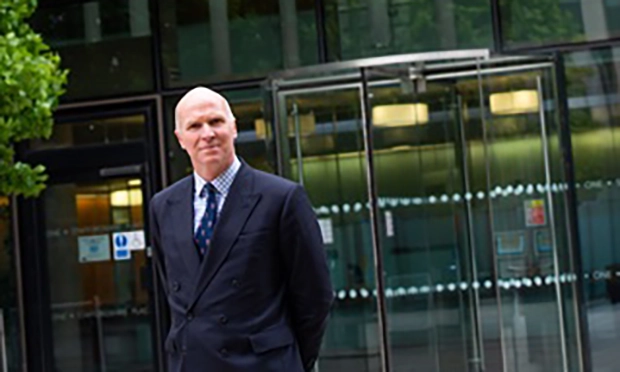Tom Dewey: Little could have been done to stop him becoming a councillor, concludes inquiry

John Henderson, former chief executive of Staffordshire County Council. Photograph: Staffordshire County Council. Free for use by partners of BBC news wire service
Very little could have been done to stop Tom Dewey from becoming a Hackney councillor despite his arrest for possessing indecent images of children, the head of an independent review into the scandal has said.
Dewey, who spent 11 days as a Labour councillor for De Beauvoir ward in May 2022 before resigning, was given a 12-month suspended sentence in August last year after being convicted.
He had previously worked as a council officer between October 2015 and May 2017.
His arrest came three weeks after he submitted his nomination papers for the council election, and a week before he was elected to the council, at which time he was on bail.
The council found about Dewey’s arrest from the National Crime Agency (NCA) the following week.
The resulting scandal led to the resignation of Philip Glanville – Dewey’s housemate – as the borough’s elected mayor.
Glanville had attended a Eurovision party with Dewey after being informed of the arrest by Mark Carroll, the council’s chief executive at the time.
John Henderson, a former chief executive of Staffordshire County Council, concluded that council processes worked as they should have done when Dewey’s arrest came to light.
At an extraordinary council meeting on Wednesday (24 January 2024) to discuss the report, he told councillors that Dewey had “targeted Hackney as a place to launch his political career”.
Henderson said: “I’m not sure that much could have been done to stop Mr Dewey because he was, after all, innocent until proven guilty.
“There is a case that says bail conditions are an agreement between the individual and the officer making bail to that person, and it’s no business of the council’s.”
But Henderson said the council had acted correctly after it had been told of the arrest, with senior officers making plain to Dewey the implications of his bail conditions, which included restrictions on his use of electronic devices.
He said: “The council took a very responsible view by stepping into that space and saying, ‘no, this is what it’s going to be like’. I think that that conversation was quite decisive in swinging Mr Dewey’s decision to resign at that time.”
The council had followed “every step to the letter” in dealing with Dewey once it found out about his arrest, he said.
Henderson said in his report that he did not believe it was appropriate for candidates to have to undergo disclosure and barring checks before being able to stand for office – pointing out Dewey would have passed a test in early 2022.
But he recommended that the council’s political groups review the way they choose candidates, and that Hackney Labour should consider whether or not candidates are chosen at ward level for the 2026 election.
When Deniz Oguzkanli, a Labour councillor for Lea Bridge ward, asked Henderson about the “significant delay” in the NCA telling Hackney Council about Dewey’s arrest, the report’s author said the time period was actually “quite impressive for large bureaucracies”.
“I would suggest that one working week between him being declared as a councillor and them having done all of the information governance and getting the information to Hackney Council was very good,” he said.
“If you think of the fact that the Metropolitan Police arrest just shy of 100,000 people every year, to have worked their way through that in that time. I would suggest it’s quite impressive.”
Neither Dewey nor Glanville took part in Henderson’s investigation.
Councillors will discuss the report further at a scrutiny meeting on Tuesday (30 January).
